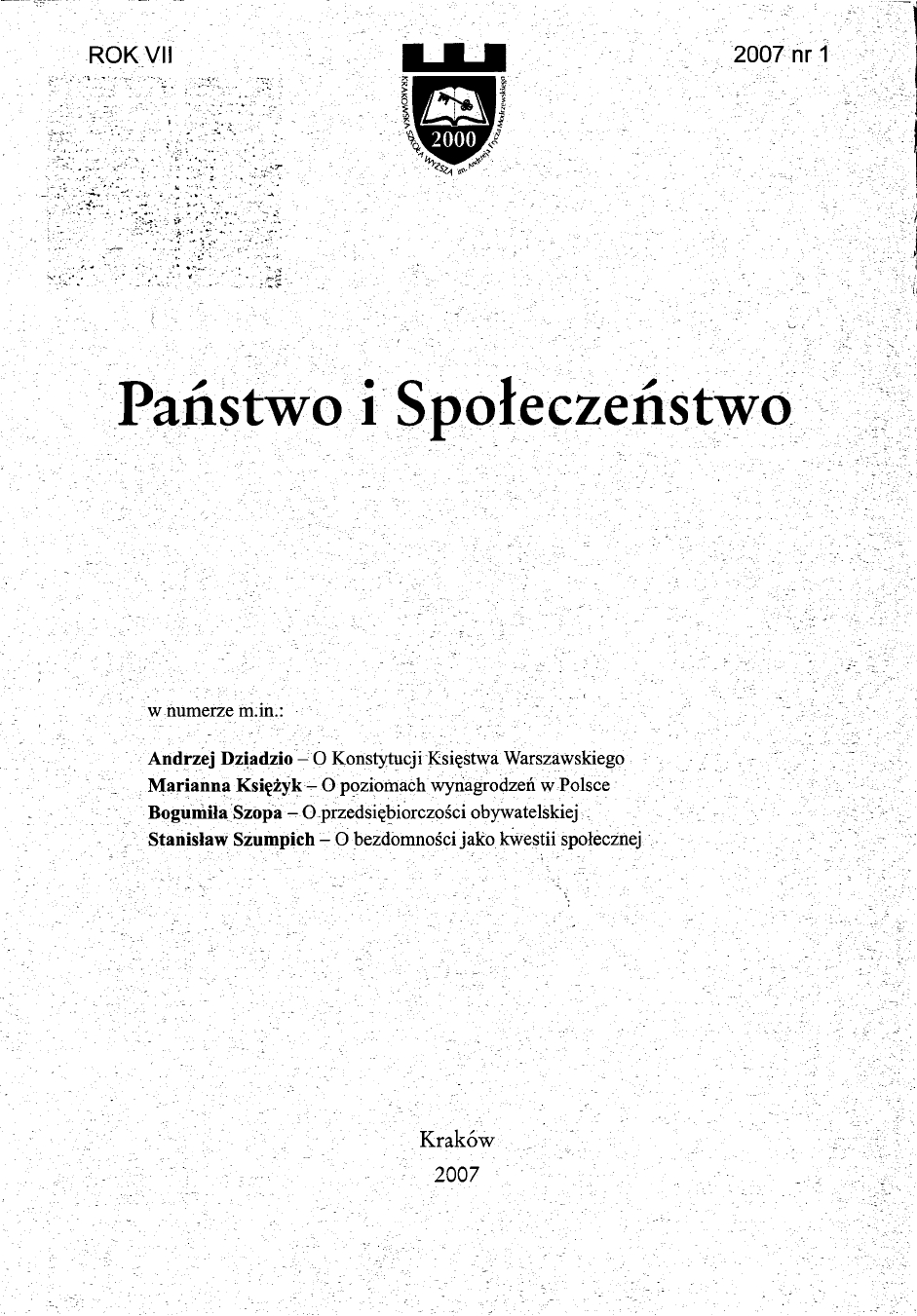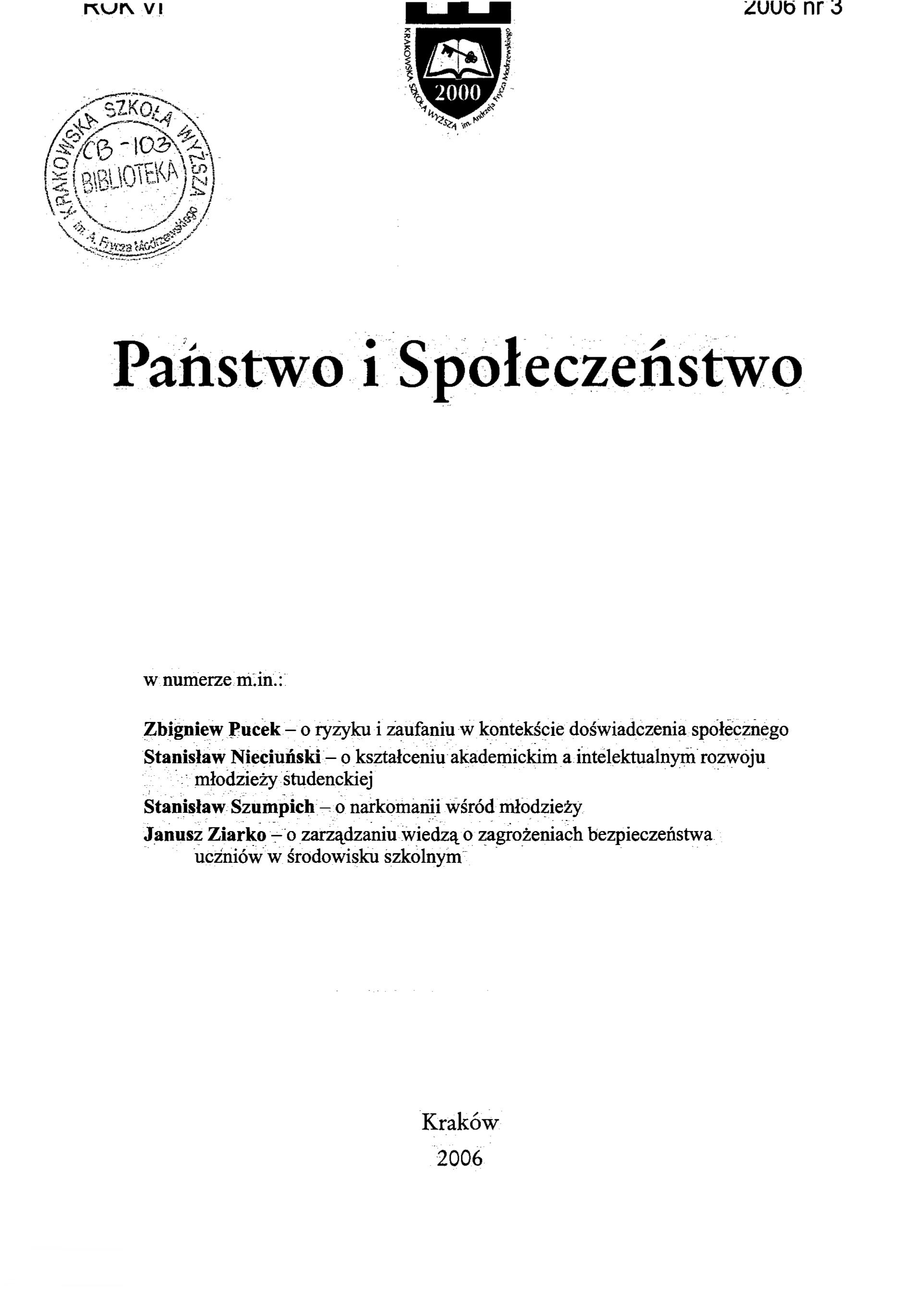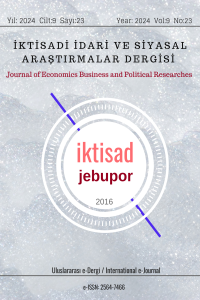
We kindly inform you that, as long as the subject affiliation of our 300.000+ articles is in progress, you might get unsufficient or no results on your third level or second level search. In this case, please broaden your search criteria.


Loneliness is a complex and multidimensional phenomenon, defined on different plains. Loneliness can concern the man in every phase of his development, and depending on the period at which he will turn up, takes different forms. Usually is associated with negative sensations as sadness, sorrow, longing, nostalgia or also an anger are usually being associated with negative experiences, but also is combined with pleasant feelings, as a feeling of release or the rest. Increased states of the loneliness are difficult and can influence functioning of the adult man negatively. In humans, the adult loneliness is sometimes a choice, not a necessity. The child loneliness is always a negative overtone. The modern society is characterized with high degree of the egoism. With effect of it there is a drastic height of the number of children going the severe loneliness through amongst persons formally among others closest, in the family. Against this background a defi ciency of the psychological contact of children with parents appears. The awareness of the universality of the phenomenon of leaving children alone in families is overwhelming. The factors that cause the feeling of loneliness a child include: lack of emotional ties between the child and the parents in the upbringing of autocracy and the use of inappropriate methods of education, improper system of penalties and rewards in the educational process. Factor in the feeling of loneliness can be a child’s illness or disability, dysfunctional family, a family history of pathological phenomena, parents addiction cause an increase in feelings of loneliness in all areas of a child – mainly in the emotional and social. The diversity of interactions and situations that makes family life contributes to the feeling of subjective feeling of loneliness children among the people.
More...
The article was written by me and my students from the Faculty of Psychology and Humanities Academy of Krakow. Senior Clubs are a very good example of social capital as a network of social relationships between individuals who trust each other and have a reciprocal. People in the network tend to mutually support each other, help and exchange important information. Thanks to the participation in the Senior Clubs can contribute actively to prevent a serious threat occurring at the senior age, which is depression. According to the WHO, it is the fourth most serious health problem in the world, which are often the source of a signifi cant deterioration in mental functioning, physical and social disability, and suicide attempts. Depression in the elderly is more dependent on environmental factors than younger people. While younger people family burden found in about 80% in the elderly is at about 44%. This means that the depression at the senior age is much more driven by the social rather than biological factors compared with younger age groups. This also means that it is easier to prevent and treat using these social factors. One of the main causes of depression in the elderly is the depletion interaction with the environment, and reduced activity. Therefore, it is important to stimulate the activation of such persons, thereby reducing the risk of depression. Recent psychological research indicates a strong relationship of friendship with happiness and the length and quality of life. Friendship improves happiness through the creation of social support and a sense of belonging. The aim of our research presented in this article was to test the hypothesis that individuals who actively participate in the Senior Club are less depressed than those who do not participate. Our team conducted empirical research presented in this paper, allowed to confirm this hypothesis. Activity in the Senior Club provides activities, involvement and support of mental health, which may significantly prevent the development of depression. Of course, it is also probably the case that those who are already at risk of suffering from depression or her less likely to participate in the activities of the Senior Citizens Clubs. It is often associated with passivity, apathy and withdrawal from the social environment, and so often associated with symptoms of depression. However, even in such a situation, the primary treatment, usually bringing more interest in the world and people should encourage such people to actively participate in senior clubs. It is then treated as a kind of social therapy. Social and cultural activity in old age is a factor in increasing the quality of life, serving mental and physical health, increasing the level of happiness and reducing the level of suffering.
More...

Conflicts are inevitable even in the most harmonious life of family. The kind of the conflicts and the ways of their resolution at first depends from the persons’ psychical maturity in them participating. In situation when it fizzle out to unload tensions and conflicts, it comes to crisis of marriage or family characterizing in this, that husband’s and wife’s essential needs or needs parents and their children are not satisfy on a required level. Some kinds of crises can lead to disintegration of marriage and family and in a long term to weakness the internal coherence characterizing in neglecting the persons’ duties and duties in relation to children, the consequence of this is break-up of the marriage and family. From the formal sight it express as a figure of divorce or separation. Each divorce confirmed by low means emotional, psychical, economic and parental divorce. In a consequence weakens or annihilates emotional ties, the division of property follows among getting divorced sides and disconnection one of them from caring over juvenile children. Moreover the age, state of the child’s health, degree of emotional sensibility, fear about new condition of life can decide about positive or negative the child’s behavior to divorce of its parents. Counteraction would depends disintegrating conflicts on creating family community, spread in a proper family communication but mainly for preparation of a young person to life in a society, at marriage or in family.
More...
In the paper, the generation gap conflict phenomenon occurring in families with adolescent children is given thorough psychological and sociological analysis. Attention is drawn to psychological and socio-cultural causes of such conflicts, the stages of their development are determined, constructive and destructive strategies of managing family conflicts are indicated, and four types of tension arising between parents and their adolescent children are characterised in families of three close generations: the End of Century Generation, i. e. the 1989 Generation, the Transformation Period Generation, and the End of Century Stragglers.
More...






Families with intellectually disabled children face many problems and difficulties in the process of care, which are influenced by their psychosocial functioning. The aim of the paper is to present the current problems of parents with a moderately intellectually disabled. child, based on results of the study conducted with 80 families in the Bułgaria. The results show that the main problems of the parents are connected with lack of adequate support and services for their children. There is a discussion about current changes and development of a policy for family support for children with intellectual disability during the last ten years.
More...
Helicopter parenting describes parents who constantly interfere with their children's lives, overprotect them, and try to eliminate problems their children face. It is a parenting style that includes intervention, warmth, and over control dimensions. Although a certain amount of control is indispensable at early ages, it has negative effects on emerging adulthood. The emerging adulthood period is defined as a developmental period in which individuals can define themselves as neither adolescents nor adults, try to discover their identities, and believe that they have endless possibilities. Considering the characteristics of this period, helicopter parenting negatively affects the identity discovery process and thus increases the feeling of being in between. Besides, excessive control, intervention, and assistance cause children to turn into adulthood without developing the necessary skills. In this review the concepts of helicopter parenting and emerging adulthood will discussed and their associations will be examined. It is aimed to review the literature on the effects of helicopter parenting on emerging adults and to examine these effects within the framework of self-determination theory. Based on the outcomes of the studies reviewed, further emphasis has been highlighted on the need for longitudinal and cultural studies on the effects of helicopter parenting.
More...
Vaccination concerns and motivations regarding this topic are increasingly discussed not only among specialists but also by the general public. In this paper I rely on the Eurobarometer 91.2/ 2019 survey and I classify European respondents in four attitudinal profiles, from the skeptical ones to the pro-vaccination type. This survey conducted by the European Commission is the most recent study in the field with a European coverage which allow us to compare and view nationally and regionally this sensible topic. This empirical classification captures statistical variability and helps build a more nuanced profile of European countries, in order to adapt national policies of awareness to vaccination and the current health risks.
More...
When using a dating app, users must adapt to the dynamic contained within its digital structure and balance the potential benefits against the perceived disadvantages. With a broad palette of dating app options, users distinguish and describe existing dating technologies in specific ways. Inspired by this idea, this study analyzes the structural elements that may influence the audience’s understanding of a dating app and shape the user experience. By employing Giddens’s structuration theory (1986), I have mapped the main structural elements through which the dating activity on Tinder is organized. The results show that six main structure dimensions may influence and shape users’ perception and participation: (1) app identity, (2) business model, (3) design elements, (4) app pattern, (5) features, and (6) the machine learning algorithm. Tinder proposes a flexible approach to dating, promising to address a wide range of user needs. Using a dating narrative, the company offers a digital space for meeting new people, designed to maximize engagement. The proposed organization of digital dating is successful from an economic point of view. Through the global success of this system, Tinder not only shapes how users meet, but offers a successful template for other similar businesses to follow. Thus, Tinder’s technological design and business strategies become the rules of the dating game, leading to its increasing rationalization through quantification and a focus on scale and speed.
More...
The purpose of this study is to determine the mediating role of communication satisfaction in the effect of leader's power resources on psychological contract. In the study in which quantitative research design was adopted, the sample consists of employees working in small, medium and large-scale enterprises operating in Yozgat. The data were collected through an online survey with 338 people reached by convenience sampling method. Partial least squares path analysis (PLS-SEM) was preferred to analyses the collected data and the analysis was performed using Smart-PLS statistical software. According to the findings obtained from the research data, it was determined that communication satisfaction has a mediating role in the effect of leader power resources on psychological contract. In addition, leader's power resources affect communication satisfaction and communication satisfaction affects psychological contract. Leader's power resources explain the psychological contract by 60% and communication satisfaction by 56%. Considering the results obtained from the research, the power held by the leader both strengthens communication satisfaction and makes the ongoing psychological contract meaningful in the process.
More...